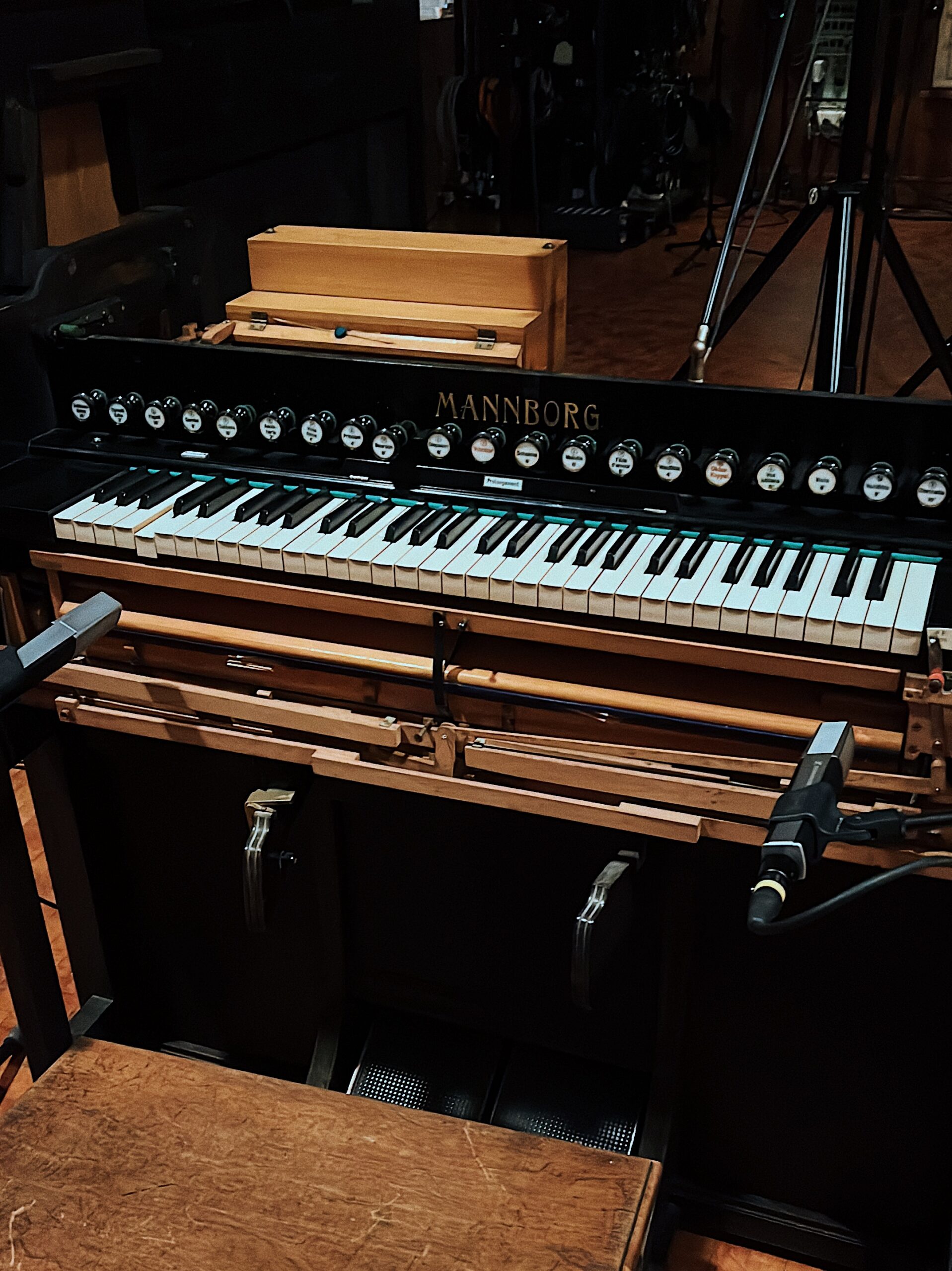In 2021, through a sound design friend working in the UK, I had the pleasure of meeting composer Natalia from Ukraine for a global advertisement project directed by me for Giant Bicycles. It was a delightful and unique collaboration experience.
Due to the pandemic, Giant’s US branch was unable to shoot locally, so the Taiwan headquarters brought the ad project back to Taiwan. As it was a global advertisement, the three actors involved in the project also came from different parts of the world. The production went as harmonious as Natalia’s notes, it was a perfect collaboration for me in every way. And honestly, because of this project, I stop overly pursuing perfection, because when everyone loves what they are doing, what they are good at, perfect harmony happens like music.
A few months later after the ad was up, in February 2022, the Russian invasion of Ukraine started.
As someone who strongly believes in democratic systems, I was furious, in many ways, I was more furious at the great West world let it happen as I know how much Taiwan had to depend on international relationships to prevent China’s force.
However, at the same time, I realised that I was not only powerless in the face of war but also very ignorant about the history, relationships, and situations of Ukraine and Russia. The news media reported on the conditions of the war and various strategic and military aspects, I didn’t even know where to start in digesting this information.
Yet, our distance from Ukraine is just like being able to hear Natalia’s music in Giant’s Bicycles global advertisement, it’s that close to us.
During the outbreak of the war in 2022, I saw Natalia’s posts on Instagram. I messaged her asking what I could do, and she simply said that if I could share more and let people know about these things, it would be more than enough.
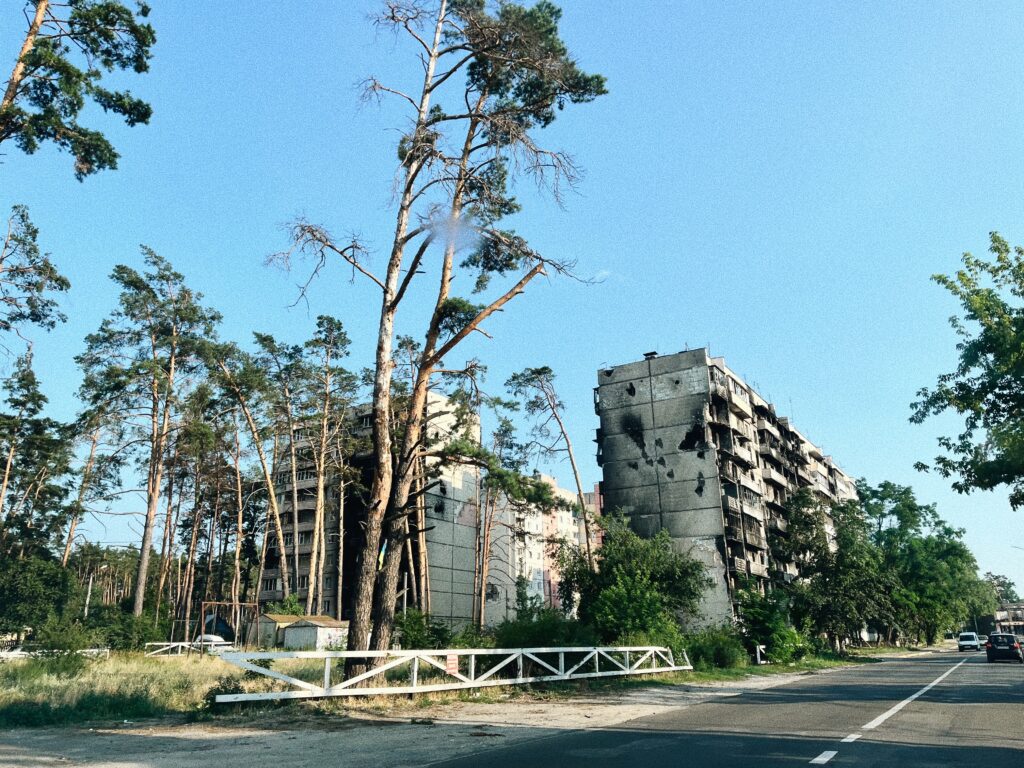
At that time, I also realised that it wasn’t just international news that felt distant from me. Even the people around me, the people I worked with, old-time classmates, I had never truly understood their lives and cultures.
I started to ponder. On social media, we have so many friends, and we share our lives every day. But we actually don’t know much about each other. There are many things we don’t know about how we view things, how we think, and how we feel, let alone the people whose countries are having a war. I had so many questions, but I didn’t know where to start or if it was appropriate to ask.
After directing several documentaries, I finally gathered the courage to initiate this Frankly, Humans project. I decided to start by interviewing people I know, seeking a space for more communication to understand the world.
So, I took the initiative to schedule a video interview with Natalia. Before the video call, I prepared an outline of questions for her to answer.
In the next article, I will organise our video conversation and share it with the readers. I also welcome your comments and emails to share your thoughts and feelings on the differences between reading the written dialogue and watching the video conversation.
The following is our written interview: Interview Date (2023/05/29)
How did you first get involved in music and what inspired you to become a musician?
I started playing violin and piano at the age of 4. I couldn’t tell whether I wanted to make music or not at that age and I don’t even think I was very good in the beginning. At the age of 8 or so, I started improvising some random stuff on the piano and actually tried to hide it from everyone for a long time (for some reason I found it embarrassing). But I guess I realised then that I would love to create new music.
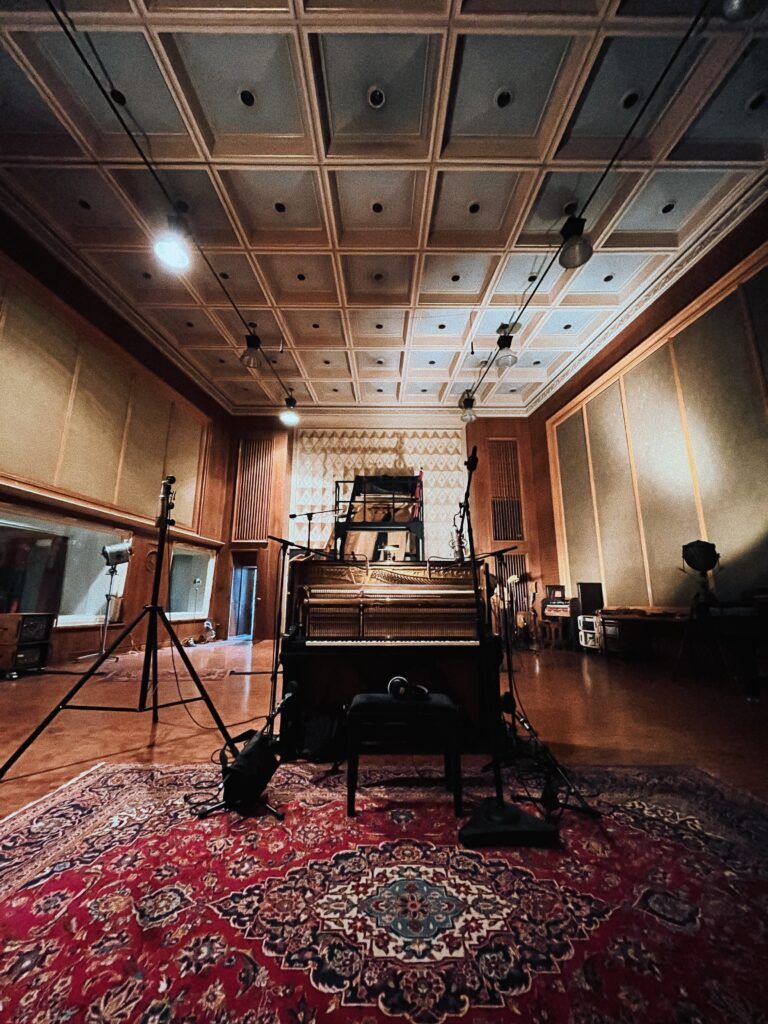
Could you tell us about your musical background and any formal training you have received?
I was trained as a classical violin performer, I finished a music school in Kyiv, Ukraine and then studied at the Vienna Conservatory in Austria.
Are there any notable performances or memorable moments, and stories in your career that you would like to share?
I am not sure. There were so many performances in my life until I moved more towards composition and film music, it felt almost like a daily thing. I guess since we are discussing the war, and in this case the Russo-Ukrainian War, I remember going on tour to Kherson (South Ukraine, which was occupied by the Russians for many months and liberated in the Autumn of 2022) several times. It was a fun experience back then but now it plays a special role to me. Kherson has been heavily shelled by the Russians with many places destroyed which is heartbreaking to watch. I admire the people of Kherson for their resilience and am dreaming of going to free Kherson soon.
(Note: One week after the interview with Natalia, on 2023/06/06, the Nova Kakhovka Dam explosion incident occurred in Kherson. Reported by CNN.)
What genres or styles of music do you specialise in? Are there any particular Ukrainian influences in your music?
I really like folk music. I like that it comes from the people. Ukrainian folk music has been twisted and banned by Tsarist Russia and then the Soviet Union for many centuries. Being classically trained, I try to combine my old background with the new electronic elements.
How do you feel about the role of music in Ukrainian culture? Do you see yourself as an ambassador of Ukrainian music?
The role of music is very important in Ukrainian culture, especially the role of a folk song. I have been including Ukrainian folk in my music for many years. I wanted to show how beautiful and cool it is to the rest of the world. I am not sure I’d call myself “an ambassador of Ukrainian music” but I’m definitely honoured and proud to play a small role in representing Ukrainian culture which, for many centuries, has been overshadowed by the Russian culture.
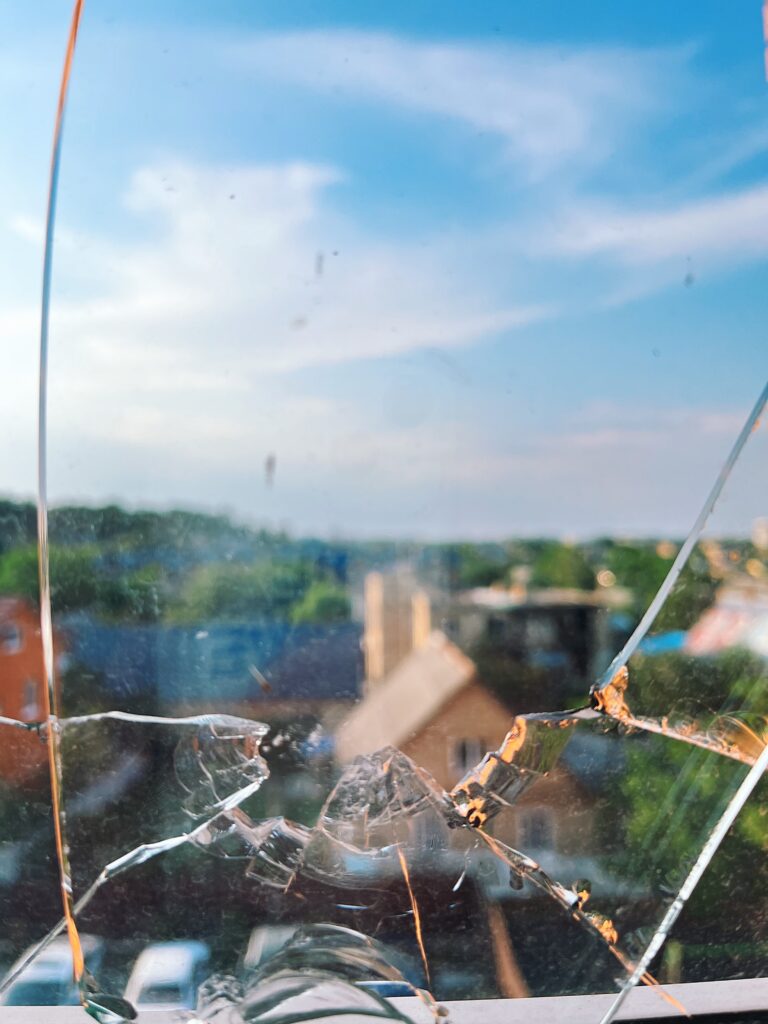
How has the war and its impact on Ukrainian society shaped your perspective as a musician?
The war more shaped me as a person and then my person shaped me as a musician. The war turned everything upside down, it forced me to become more mature and resilient, to keep doing what I’m doing when the sky is falling on my head.
How do you navigate the delicate balance between addressing the war and maintaining a sense of hope and resilience in what you love? Have you encountered any challenges or obstacles as an artist in addressing the war and its aftermath through your music?
I am definitely very grateful to music for being there for me when there was (and is) a huge gap in my heart. I don’t think I can do many things but I think I can make music and talk to the audience through it. I can talk to myself through music.
Do you believe that music has the power to bring people together and foster unity, especially during times of conflict? How do you see this happening in Ukraine?
Music definitely brings people together. Maybe you’ve seen videos of Ukrainian soldiers in the trenches playing an instrument or singing songs. They want to forget about everything just for ten minutes and think of the future they’ll have when the war is won. I lost a friend in battle two weeks ago, he went to music school with me and was a very talented person. He would play the piano for his comrades at the frontline and it was incredibly beautiful.
Have you had any personal experiences or interactions with individuals affected by the war that have deeply impacted you? And can you share how the war has changed Ukrainian artists’ life?
Everyone has been affected by the war. As mentioned in my previous answer, I lost a good friend two weeks ago, he was defending all of us at the frontline. I am not sure I will be able to count all of the people I know that suffered from the war, it will take me days to write it…
Do you believe that art, including music, can play a role in promoting peace and reconciliation in post-conflict societies like Ukraine?
I don’t think it’s appropriate to talk about things like “promoting peace” and “reconciliation” at this stage so I will skip this question. Maybe one day.
What role do you envision for music in helping Ukraine heal and rebuild in the aftermath of the war?
The huge role, I would say. We all need hope. There is no reason for anything if there is no hope. I think music gives people the hope they need. The war is terrible and difficult but I think what comes after the war will be even harder.
What message do you want to share as a Ukrainian artist to Taiwanese people who are encountering China’s threat? Or just to the world in general?
I don’t think I am in a position to give anyone advice, but I’ll just say, defend your freedom, don’t give it up because it’s very hard to get it back once you do. Authoritarian regimes don’t speak your language of democracy, you can’t talk to them in a normal way, you can’t expect them to be normal. Don’t think of them as someone who thinks the same way you do.
After receiving Natalia’s responses via email, I began to reflect on whether my many questions were appropriate. To be honest, I didn’t even know how to face someone who had lost a friend on the battlefield just two weeks ago.
A few days later, we had a video conversation that lasted for 2-3 hours. During our chat, I realised that my initial fear of causing offence had disappeared.
Natalia’s sincere attitude and tone made me eager to learn more about her world and the stories she knew. It also made me want to share my own experiences and observations as a Taiwanese person regarding these matters.
At that moment, all I could feel was how strong she was. Perhaps, in some ways, I simply wanted to know if the people I knew were doing okay. Despite asking many ignorant or potentially impolite questions during the interview or smiling at inappropriate moments when she described the war, I was just genuinely happy to see that she was still living well, able to communicate with me, and able to forgive me when my ignorant questions may have triggered her inner pain.
I mean, I did ask her if she would watch my video if I interview a person from Russia… And she said no, she would not, but she was still supportive of me doing something like that. I feel it was a moment for me to regain confidence in democracy and freedom of expression again, and I think it is something Ukraine should be so proud of, and perhaps the main reason why they will not surrender.
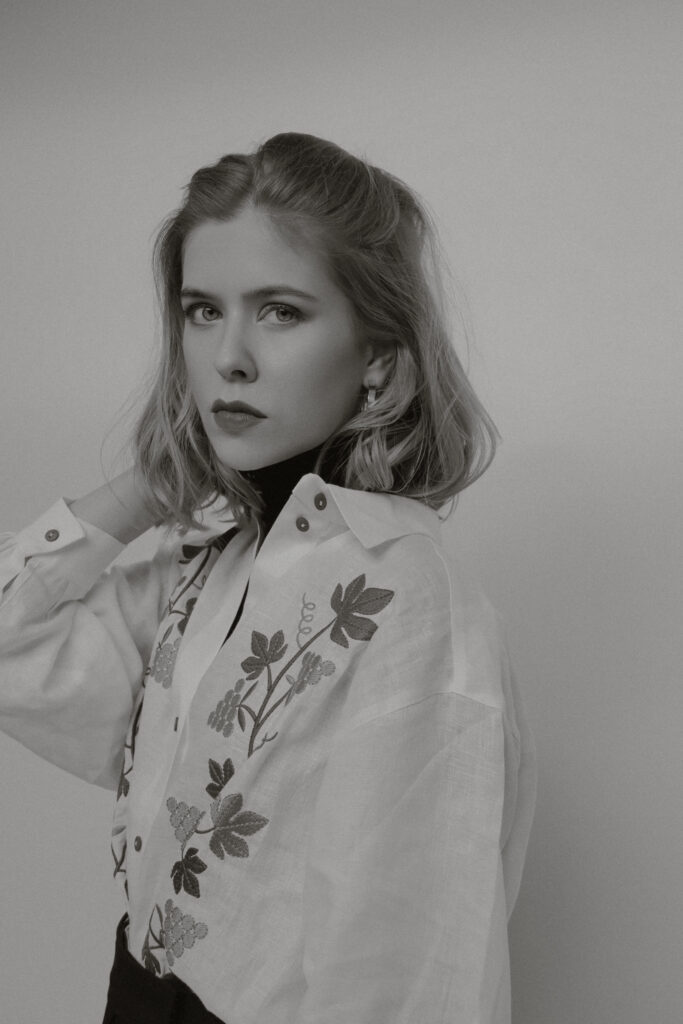
Throughout the interview, I couldn’t help but think that if she had been killed by a bomb upon returning to Ukraine, we wouldn’t have had the opportunity for these conversations. I wouldn’t have had the chance to learn so much about Ukraine’s stories, the stories from people I know, from her own words.
At the end of the day, if we don’t even have curiosity for the people we know, how can we expect people to pay any attention to things that happen thousands of miles away?
I have never had any training as a journalist or editor, I’ve only made documentaries, but I think that maybe unfiltered, unadorned conversations are how ordinary people like us can have more meaningful exchanges with the world around us.
After talking with Natalia, I realised how fortunate we are to have language and written words that allow us to engage in rational communication with others. However, to truly get closer to Natalia and what Ukrainians have experienced, perhaps we can only feel it through listening to Natalia’s music.
I listened to Natalia’s music while writing down my words. I believe that the language of arts always speaks to our hearts when we listen from there. And I hope that one-day Russian people would open their hearts and listen to Natalia’s music, because to be honest, as a filmmaker, among all the emotions I heard, I didn’t see hatred.

